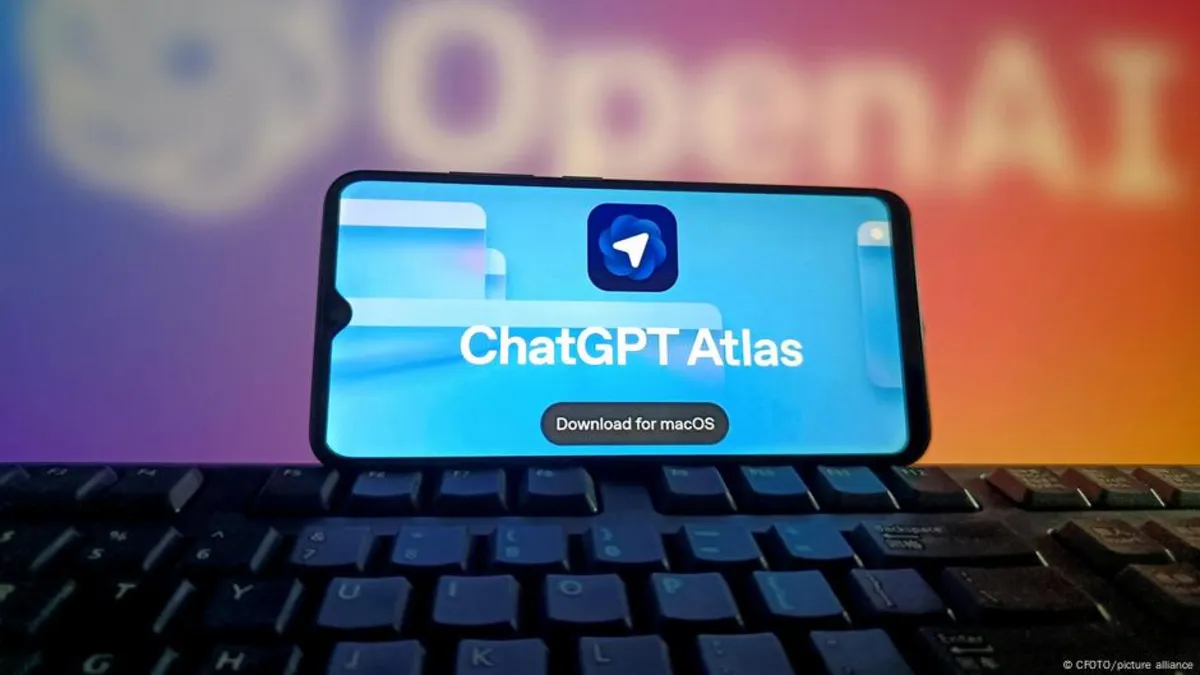
On Tuesday, OpenAI, the prominent US artificial intelligence company, announced the launch of its innovative web browser named Atlas. This new browser aims to rival the popular Google Chrome, which has dominated the market since its inception. Powered by OpenAI's renowned chatbot ChatGPT, Atlas seeks to transform the way users interact with the internet, introducing groundbreaking features that promise to enhance online experiences.
During a video presentation, OpenAI CEO Sam Altman emphasized the need for significant innovation in the web browser space. "Tabs were great, but we haven't seen a lot of browser innovation since then," Altman stated, highlighting what he described as a rare, once-in-a-decade opportunity to rethink browser functionality. This vision underpins the development of Atlas, which will initially be available exclusively for Apple's Mac computers.
What sets Atlas apart from traditional browsers is its unique approach to navigation. Altman proposed that the conventional URL search bar might be replaced by an AI chatbot interface, allowing for a more intuitive browsing experience. Users can expect to complete tasks seamlessly without the need for copying and pasting information or navigating away from their current pages.
Another standout feature of the Atlas browser is its agent mode, which allows the browser to navigate the internet on behalf of the user. By leveraging a user's browsing history, this mode predicts the type of information users are likely to seek, effectively “using the internet for you,” according to Altman. This feature aims to streamline the online experience, reducing the need for manual searches.
Since its launch in 2008, Google Chrome has gained a staggering user base of approximately 3 billion users globally, leaving competitors like Microsoft's Internet Explorer and Edge behind. However, the growing reliance on AI chatbots, including ChatGPT, for efficient information summarization is prompting users to reconsider traditional browsing methods. OpenAI reported that ChatGPT has amassed over 800 million users, with a survey indicating that around 60% of Americans, and 74% of those under 30, use AI to find information at least occasionally.
While AI chatbots are becoming increasingly popular, concerns remain regarding the accuracy of AI-generated information. A study by the European Broadcasting Union (EBU) and the BBC found that 45% of AI responses contained at least one significant issue, with 81% exhibiting some form of problem. The study assessed AI assistants, including ChatGPT, for their accuracy, sourcing, and ability to differentiate between opinion and fact.
For instance, ChatGPT was reported to confidently assert that the current Pope is Pope Francis, several months after the former pontiff's passing—an error that can significantly undermine user trust. EBU Media Director Jean Philip De Tender warned that when users cannot discern truth from misinformation, they may ultimately lose trust in all information sources, which could hinder democratic participation.
As OpenAI rolls out its Atlas browser, the tech world watches closely to see if it can carve out a niche in a market overwhelmingly dominated by Google Chrome. With its innovative features and AI-driven capabilities, Atlas may redefine browsing, but challenges concerning user autonomy and information accuracy remain critical concerns that the company must address.